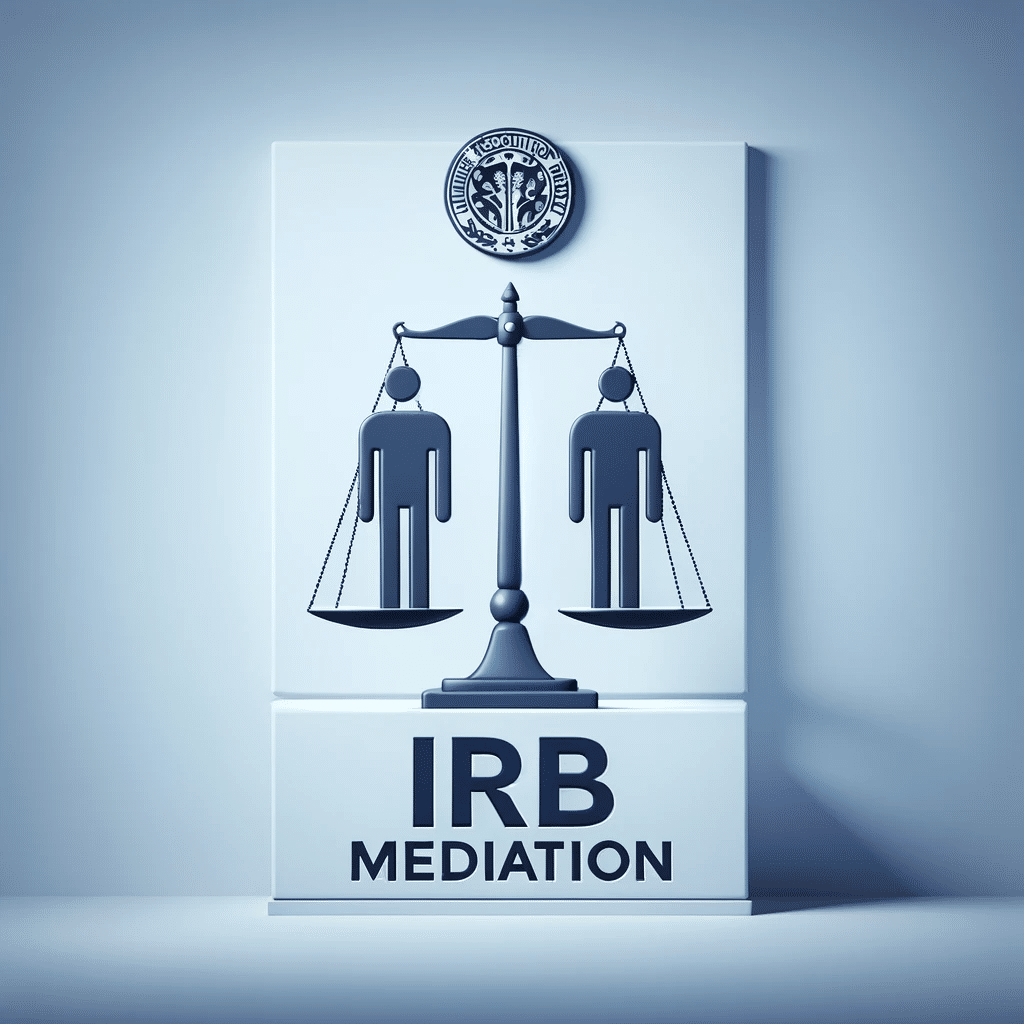This week we learned that the Personal Injuries Assessment Board (PIAB) have decided to change their name to the “Injuries Resolution Board” (IRB). Apart from the change in name, the main development is the introduction of mediation to their services. This comes into effect on the 14th December 2023 in respect of all Employer Liability claims. We are told that mediation services will then be extended to all Public Liability and Motor Liability claims at a later date in 2024.
Injuries Resolution Board Mediation and How It Works:
When claimants or their legal representatives submit an application with the IRB, there will be a new section in the application form which allows claimants to “opt into mediation”. If the claimant opts in, the Respondent will then be provided with a consent form together with the Formal Notice of the claim. The consent form will have the following four consent options:
- Consent to mediation only;
- Consent to assessment only;
- Consent to both mediation and assessment; or
- Decline consent to both mediation and assessment.
The Respondent will have 90 days to respond and as before, if no response is received, the IRB will proceed with their assessment by default. However, express consent is required from the Respondent for the IRB to proceed with mediation prior to the assessment process.
If both parties agree to mediation, they will be required to sign a confidentiality agreement. Both parties will also be encouraged to submit a short pre-mediation form for the purposes of informing the assigned mediator of the issues between the parties, including issues involving liability. An Order to Pay will then ultimately issue. If mediation fails and the Respondent consented to number 1 above, an authorisation will issue. If mediation fails and the Respondent consented to number 3 above, the IRB will then proceed with their assessment.
Issues with the New Regime
The IRB explains that “mediation will typically be telephone based” and that “the mediator, through a series of separate calls, will listen to all parties to gain a full understanding of the issue(s) and will help the parties to reach a mutually acceptable solution to resolve the claim”. For mediation to have any hope of success on a meaningful scale, it should proceed in person. This would introduce an element of time pressure which in turn encourages resolution. Bringing parties together in person for an agreed number of hours to resolve the dispute avoids long drawn out negotiations over the phone.
The IRB is a self-confessed “administrative process” and openly advises claimants that there is “no requirement to appoint a Solicitor”. This encourages claimants not to seek legal representation for their Personal Injury claim and if claimants go down this road and engage with mediation, it is foreseeable that in a significant number of cases, there will be a clear imbalance of fairness between the respondent who is more often than not, a multinational insurer and the claimant, a lay person if they choose not to appoint a Solicitor. Typically, a mediator seeks to reach agreement between parties of equal bargaining power. This would not be the case in these circumstances.
In terms of timelines, the IRB advise that their aim is to have all claims in mediation resolved in 3 months or less or within a total period of 9 months if mediation fails and the matter proceeds to assessment. In practice, these timelines are not realistic and are simply never adhered to. The IRB frequently issues “deferral letters” to claimants when it is anticipated that a claim is not going to be assessed within the 9 month period. The new IRB mediation service together with the recent adjustments made to the claims procedure on the 4th September 2023 will inescapably result in a more prolonged experience for the claimant in the IRB with claims regularly taking more time than the 9 month period referred to above.
Time will tell if mediation in the IRB will be a success to any degree. However, from the claimant’s perspective, it does seem that the new regime only serves to add a new additional layer of unnecessary obstacles for the claimant in seeking compensation for their personal injuries. No party is going to be compelled to mediate and indeed, from the claimant’s point of view, if they wish to reach a timely resolution to their claim, they should be advised not to engage in IRB mediation which will inevitably prolong the whole process.



